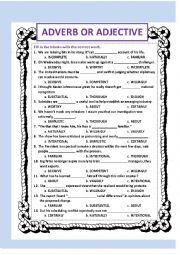
|
Adjective or adverb
This WS uses quite advanced vocabulary and ideas designed to push advanced learners. Students must decide which word is appropriate to fill in the gap from 3 options. I hope you find it useful for your students.
Level: advanced
Age: 14-17
Type: worksheet
Downloads: 192
|
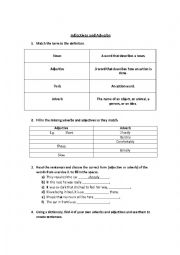
|
Adjectives and Adverbs - begin to understand the difference
This worksheet is to introduce the difference between adjectives and adverbs to English language learners. First they must match the term to the defintion. Then they need to change the adjectives given into adverbs and vice versa. After this they must fill in the blanks with the correct form of work - adjective or adverb. To finish they are enc...
Level: elementary
Age: 11-17
Type: worksheet
Downloads: 13
|
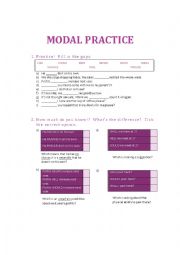
|
Advanced Modal Practice
This is meant to be a refresher for the uses of modals so that students practice what each modal is for and the meaning of it. It�s dense and repetitive as it�s a hard topic so I hope you students find it useful to remember the use of each.
Level: advanced
Age: 12-17
Type: worksheet
Downloads: 18
|
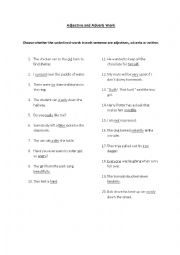
|
Adverbs and Adjectives - find the underlined word
This worksheet is a follow up from the introductory page on adverbs and adjectives I�ve already uploaded. The idea is for students to get used to identifying adverbs and adjectives and understanding what they are describing. It is also a good means for students to learn more adverb and adjective vocab. Hope this works for you!
Level: intermediate
Age: 12-17
Type: worksheet
Downloads: 16
|
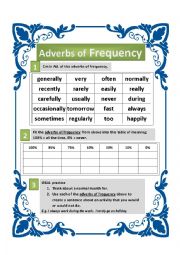
|
Adverbs of Frequency
Students are first asked to identify all of the adverbs of frequency and then work out what each of them means in a table of percentage - always = 100 etc. Then they must use their knowledge of their routine to create an oral presentation using these adverbs of frequency. I hope you find this as useful as my students!
Level: elementary
Age: 8-17
Type: worksheet
Downloads: 98
|
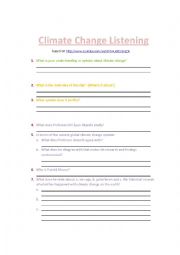
|
An Alternative Approach to the Climate Change Debate
This is listening worksheet based on the youtube video: http://www.youtube.com/watch?v=iJefbUEreZ4 . The questions address comprehension of the video, comprehension of the ideas within it and inference from what specific individuals said and therefore a certain level of analysis as well. It�s quite challenging and is great to pair with other activ...
Level: advanced
Age: 14-17
Type: worksheet
Downloads: 16
|
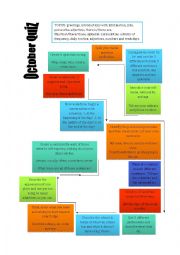
|
Beginner Topic Oral Test
greetings, introductions with information, jobs, possessive adjectives, there is/there are, this/that/these/those, alphabet, nationalities, adverbs of frequency, daily routine, adjectives, numbers and weekdays
Level: elementary
Age: 7-17
Type: worksheet
Downloads: 22
|
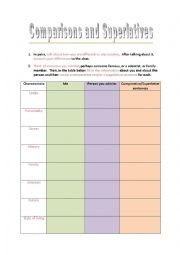
|
Comparatives and Superlatives - step-by-step from the beginning
This is a chain of worksheets on comparatives and superlatives that are designed to be a walk through lesson plan for both teachers and students. It begins by setting the idea and getting students to think about the difference between themselves and an idol of some sort and goes through the grammar structure and then ends on a reinforcing speaking...
Level: intermediate
Age: 11-17
Type: worksheet
Downloads: 5
|
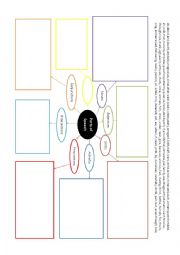
|
Identify the parts of speech
This worksheet is to use as a reminder or to reinforce and practise identifying different parts of speech. The idea is for students to write the words in the correct box.
Level: intermediate
Age: 8-17
Type: worksheet
Downloads: 10
|
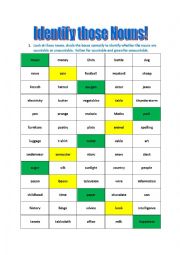
|
Identify those Nouns!
Sts must first identify whether the 65 words in the grid are countable or uncountable and shade them accordingly. They must then break these works down into different types of nouns: proper/common, abstract/concrete, compound, collective. From these nouns they must then choose 30 and pair them with an appropriate article, choosing whether to make...
Level: intermediate
Age: 14-17
Type: worksheet
Downloads: 15
|
|
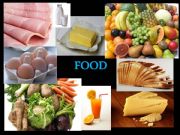
Food: What�s in your Fridge?
Students will learn the names for some very typical things in the fridge. They then need to create sentences. The powerpoint distinguishes between countable and uncountable nouns and shows how to use is and are, any and some. I used it for an oral lesson and the kids really enjoyed it and the spe...
Level: elementary
Age: 8-17
Downloads: 81
|
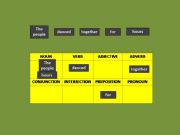
Parts of Speech revision
Students need to read the sentence and decide where each box (word) belongs - noun, verb, adverb, adjective, pronoun, conjunction, preposition, interjection.
Level: elementary
Age: 9-17
Downloads: 18
|
|
|